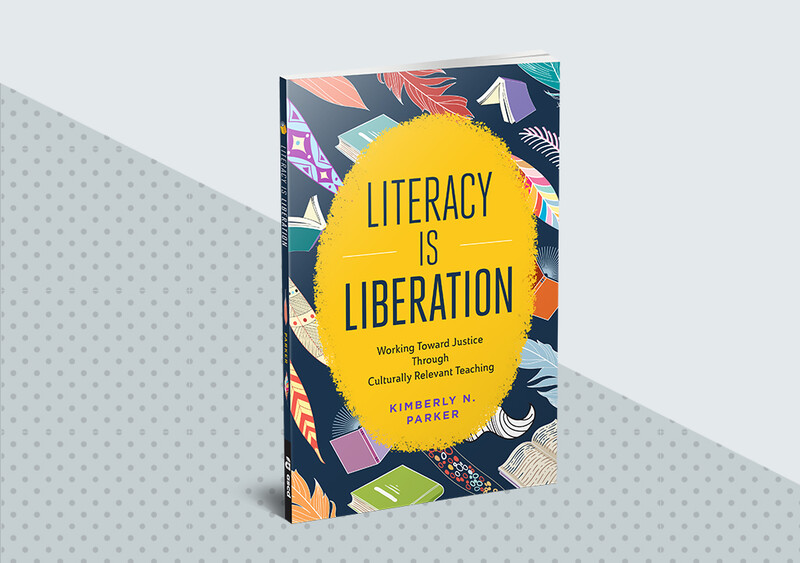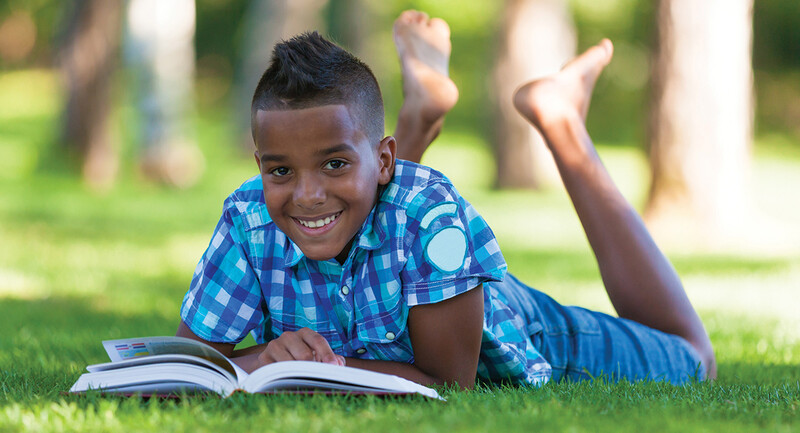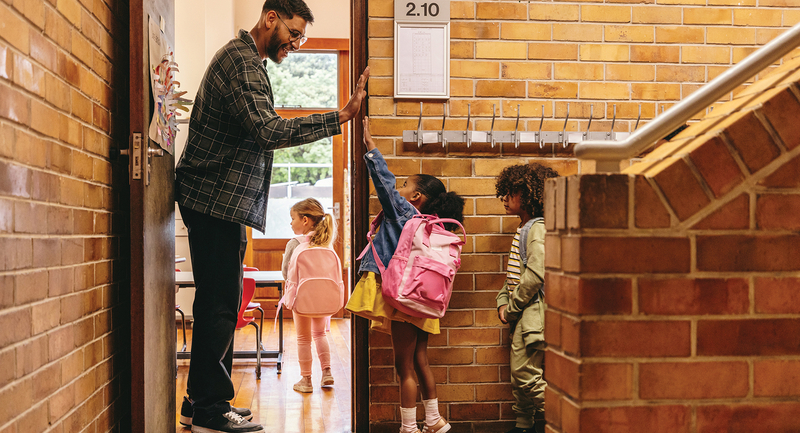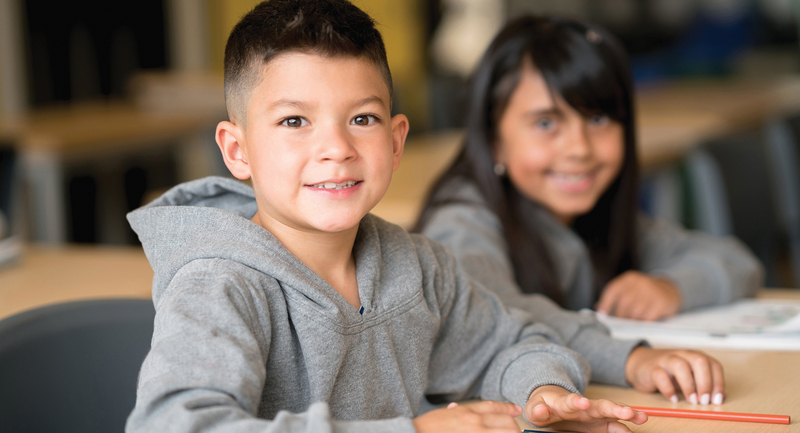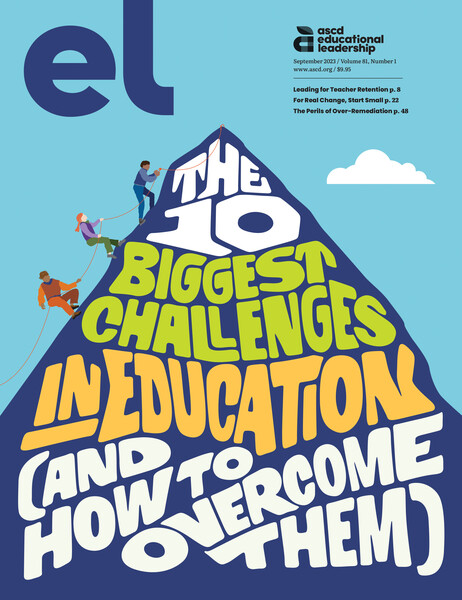I love Black children. As an adult who can remember parts of my childhood, an educator, and a mother to a Black child, I've experienced and witnessed the exquisite joys of hearing a Black boy laugh, watching a Black girl make a discovery, or simply being with Black children who are being themselves. It's much too easy to narrow our focus on Black children to one of deficits and stereotypes—as, unfortunately, many educators, policymakers, and others do.
However, as those of us responsible for the educational outcomes of Black children are heading into a new school year, we can choose to positively center Black children and their brilliance. In that singular decision, we can open ourselves to seeing the strengths our Black children already have. We can decide to create and cultivate a practice of delighting in our Black children. Making this commitment—particularly for educators who find assertions that Black youth have strength and promise to be unusual or initially don't see why they're necessary—could be some of the most powerful work we do. It has the potential to yield life-changing outcomes for our students and ourselves.
What if, this school year, we committed to specifically approaching the literacy practices of Black children with delight and joy? How might that stance help us create connections with Black children? How might we as educators be changed by interactions that result from this commitment? How might those changes support children and help ensure their success as their literacy practices expand?
Reaffirming Some Truths
To reach this point of delight and connection, though, we first must affirm—loudly—several truths. These truths may seem obvious, but they're easy to take for granted, and it's easy to give them lip service without thinking deeply about what a firm commitment to each truth means.
Black children are human beings. Often, white educators struggle to connect with Black children because of factors like cultural incompetence, racial bias, or lack of adequate preparation (Marcucci & Elmesky, 2022). Research has long indicated the importance of positive, affirming relationships between Black children and their teachers and demonstrated that such good relationships positively impact children's educational outcomes. So this lack of connection in classrooms can have long-term effects.
Black children experience the same range of emotions as their non-Black peers. Like their peers, they express those emotions in various ways. The Black children I know are complex people—they love, they laugh, they cry. They have opinions. They are sensitive. They care what people think about them. They want to make us proud. They want us to understand who they are. They deserve to be known. However, too frequently, Black children are penalized, punished, and not known for who they are.
This year, let's discover and acknowledge the joys and talents, interests and fears, aspirations, and favorite things of our Black students.
If we don't acknowledge Black kids' humanity first, we deny ourselves the gift of ever truly getting to know who they are and how to build meaningful relationships with them. This year, let's discover and acknowledge the joys and talents, interests and fears, aspirations, and favorite things of our Black students. Let's then build on what we know about each of them to help them achieve their highest potential.
Black childhoods matter. Educators must also commit to ensuring that Black children have real childhoods. This means that instead of rushing to treat Black children as older than they are, as we often do, we strive to understand them as they are at that moment in time. Preserving Black childhoods might mean using tools like those in the book Yard Sticks: Child and Adolescent Development Ages 4–14 (Wood, 2017) to gain a positive, nuanced understanding of Black children and their strengths and needs.
We can draw on good research about Black boyhoods as a way to understand how to also protect the childhoods of Black girls and Black queer children. As Dumas and Nelson (2016) assert about Black boyhoods:
Schools, community centers, neighborhoods, and families must be places that are less concerned with, for instance, the discipline and control of Black male bodies and more concerned with being places where Black boys can giggle, play, cry, pout, and be as silly and frivolous as other children without these activities being perceived as an impediment to their educational attainment or a threat to the well-being of others. (p. 39)
The reading lives of Black children are under attack. Many of the books being removed from classrooms feature Black authors writing about Black experiences. Policy analyst Anna Gifty Opoku-Agyeman (2023) explains: "We lose so much when Black children cannot be ordinary. That is why we must be intentional in our efforts to protect and preserve Black stories and storytellers." Opoku-Agyeman goes on to urge everyone concerned with Black children's literacy lives to actively ensure that books that affirm and extend the experiences of Black people are centered and available.
We must speak up, push back, and ensure that access to books by Black authors, especially for Black children, remains at the forefront of our work.
So one key action we can take to support Black children's literacy lives is to insist that a wide range of books by Black authors and illustrators are on our shelves, share them with children and families, and advocate for them to be widely distributed. Our actions must extend beyond our classrooms, too, in the current heightened state of book bannings. We must speak up, push back, and ensure that access to books by Black authors, especially for Black children, remains at the forefront of our work.
Let This Be the Year
When educators more intentionally value Black children as human beings, we'll look closely at our behavior policies and eliminate harmful punishments that push Black children further away from educational justice. This might mean changing our understanding of discipline and the racist policies often behind disciplinary practices. For instance, we might stop punishing children because certain behaviors (like having difficulty remaining seated in a morning circle) fall outside our understandings of what's normal and OK during childhood. Or, when conflicts come up, we might implement restorative practices (such as those embodied in the Think:Kids' Collaborative Problem Solving model. Let this be the year we open ourselves up to the delight of Black children and the joy of being with them. Let's decide to acknowledge the beauty of Black childhoods and work diligently to protect these children's expansive literacy lives.
Literacy Is Liberation
When teachers put culturally relevant pedagogies into action, the literacy classroom can become a space for learners to explore diverse texts, collaboratively dismantle inequities, and let their spoken and written voices be heard.
